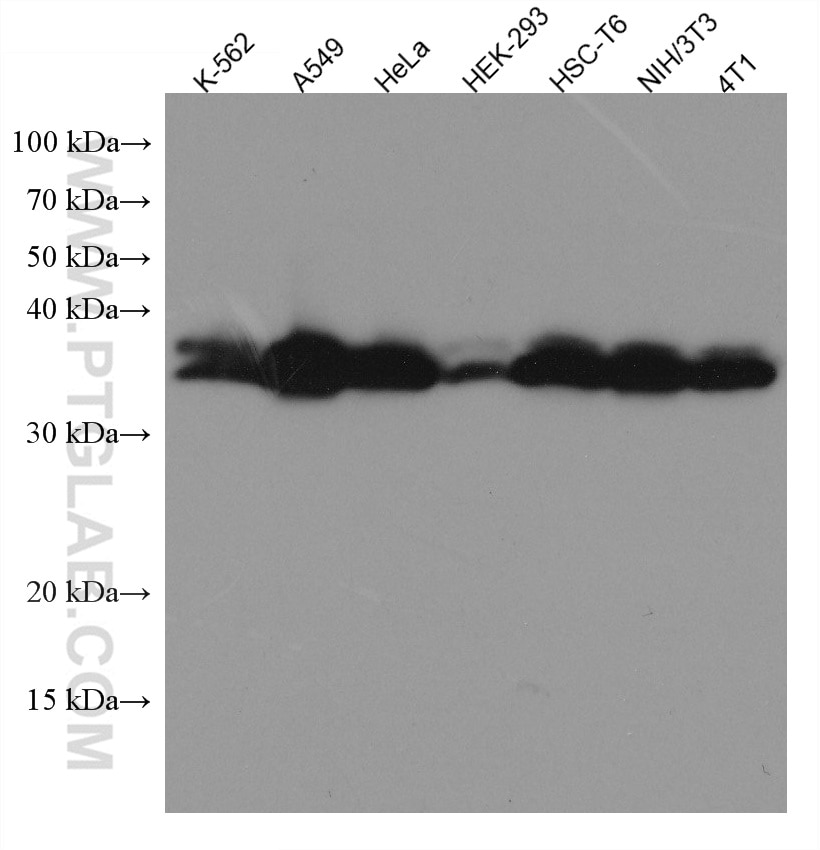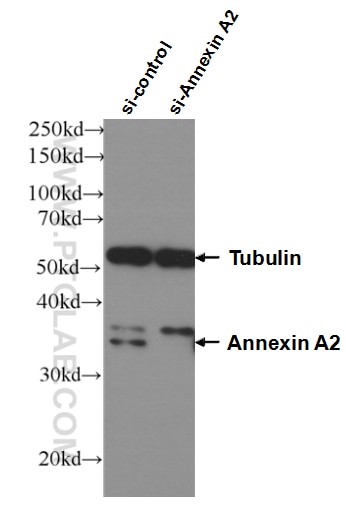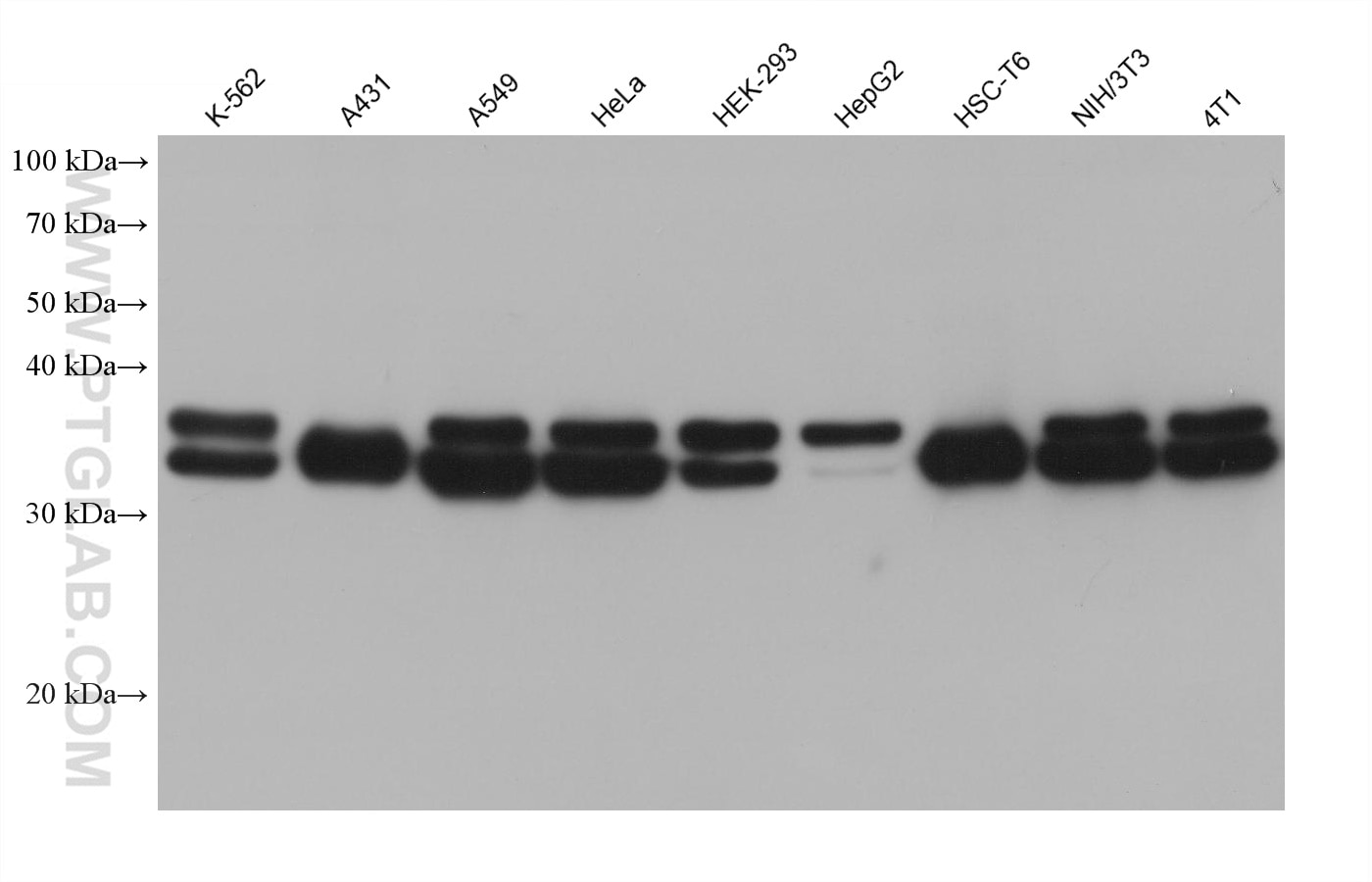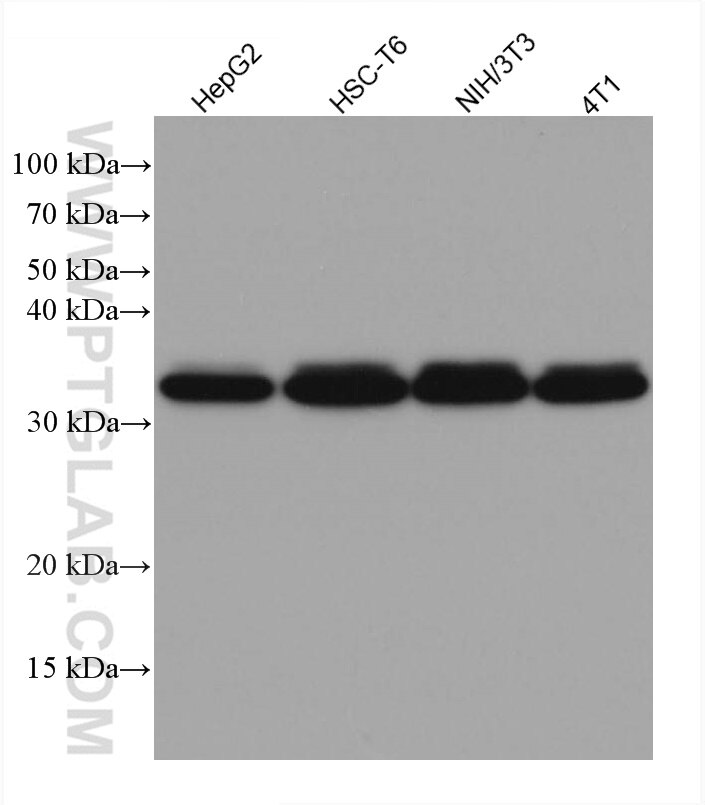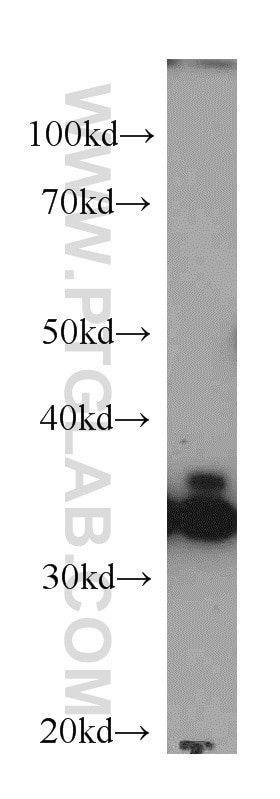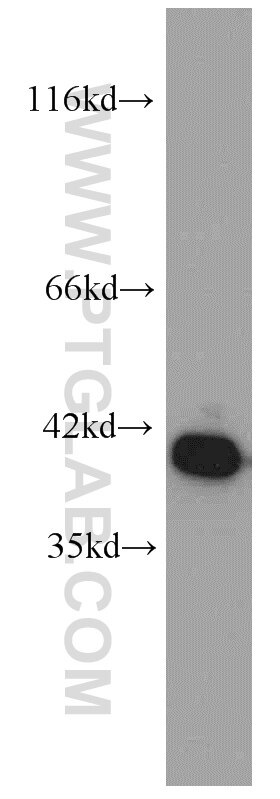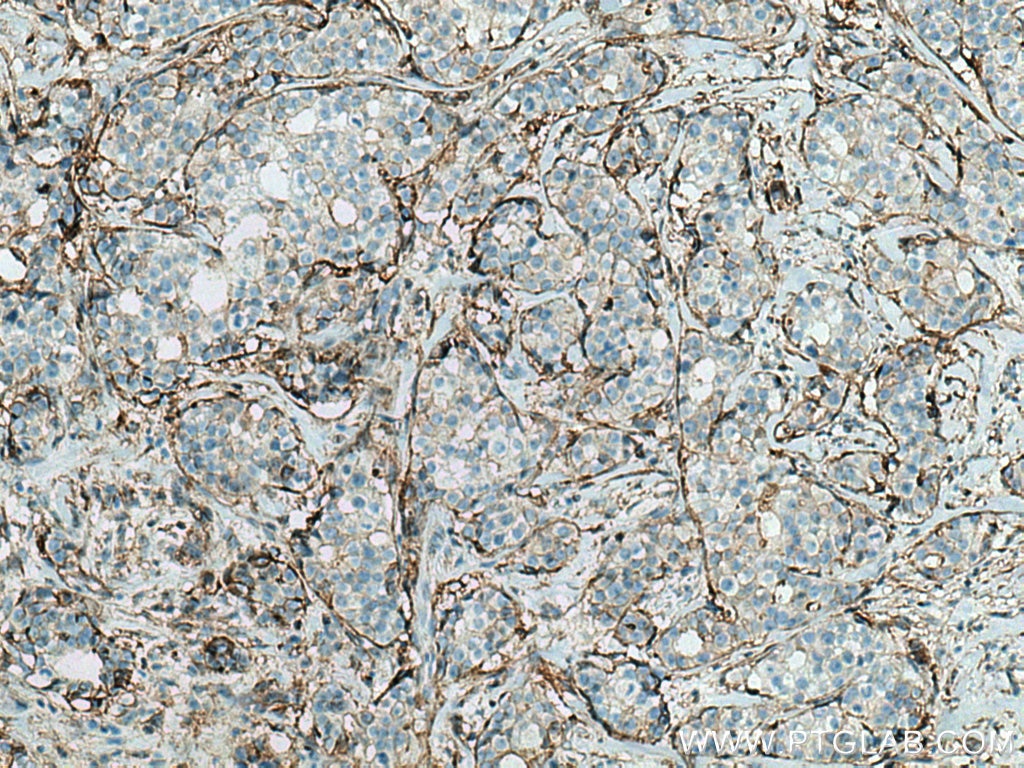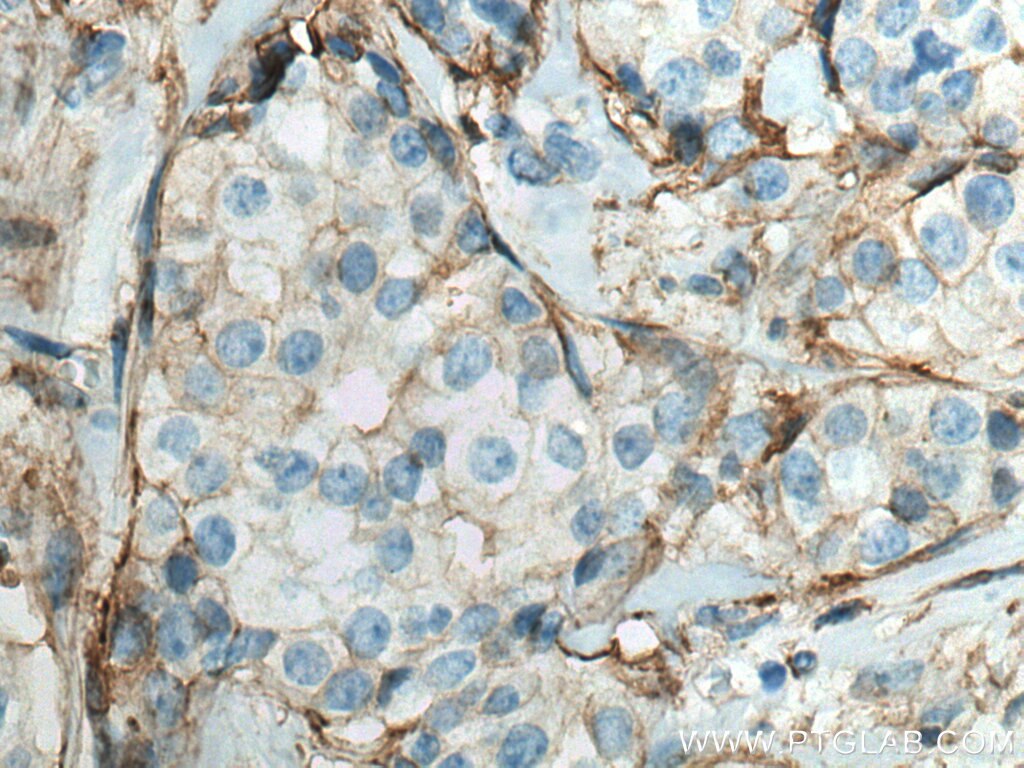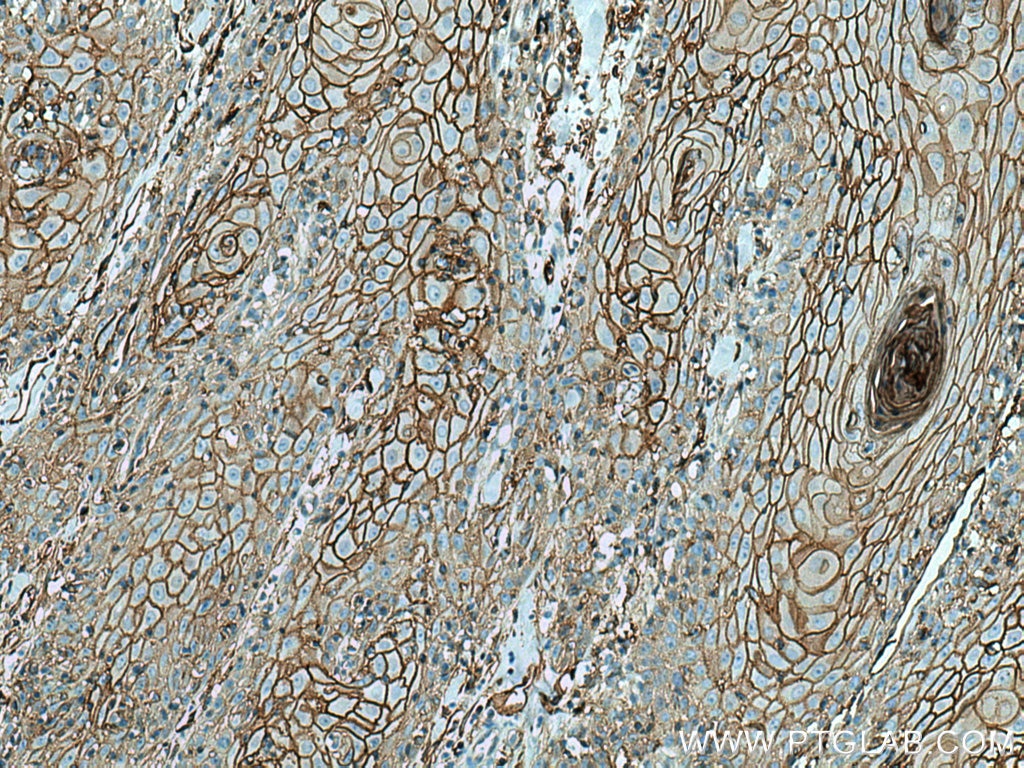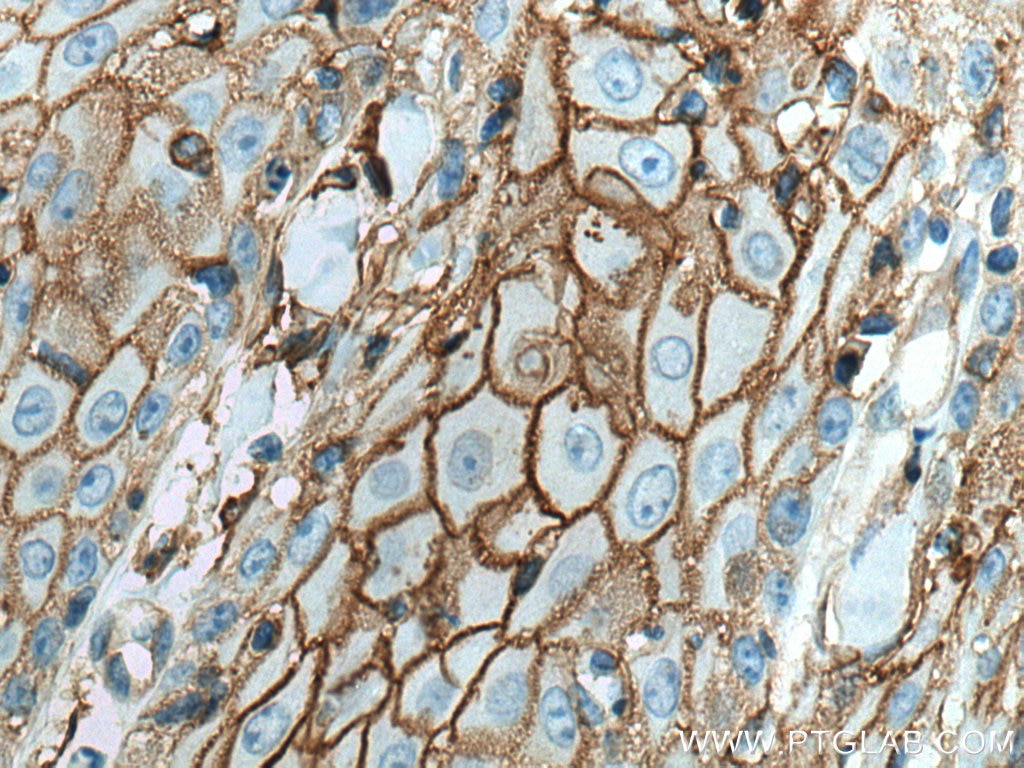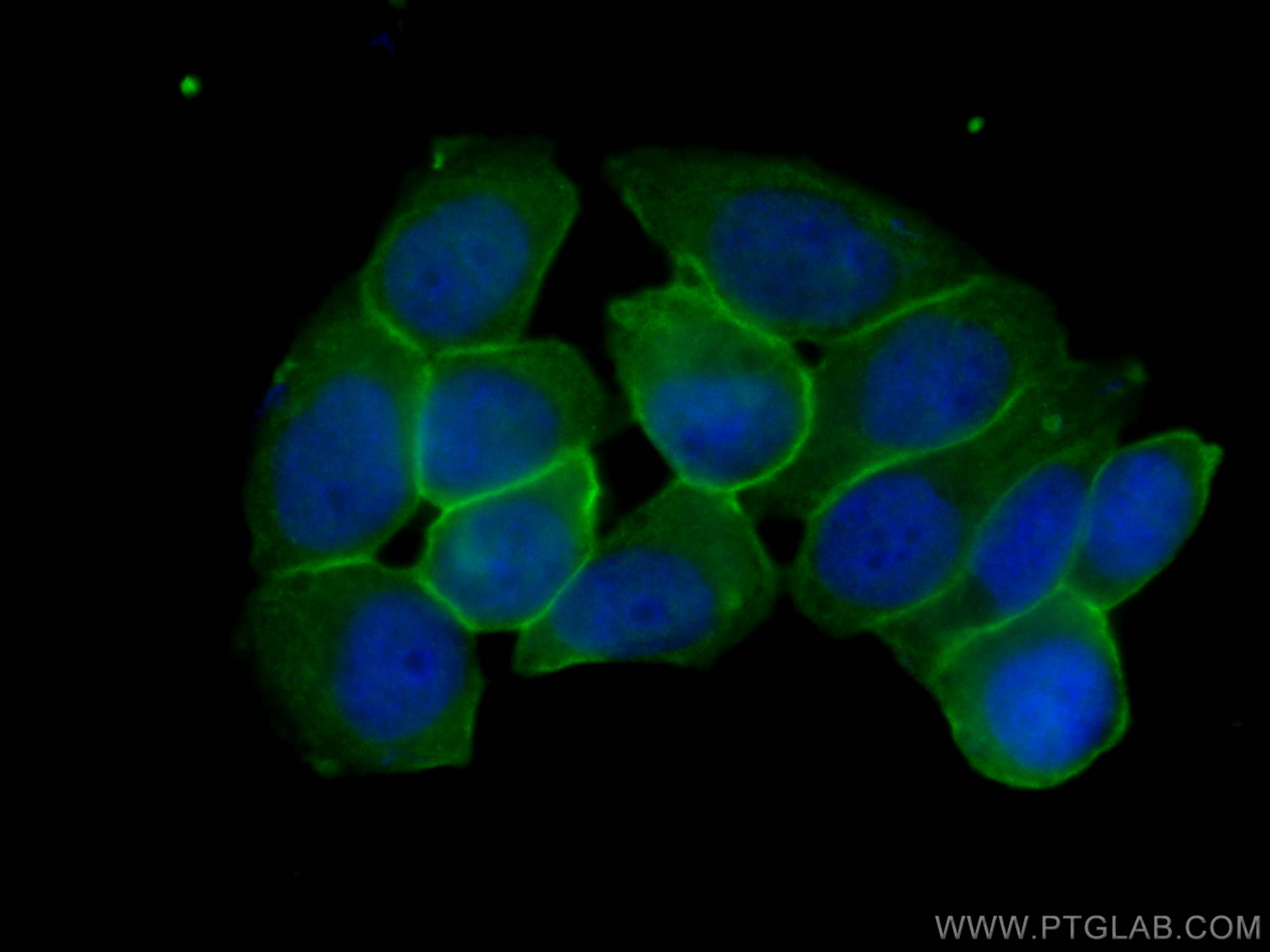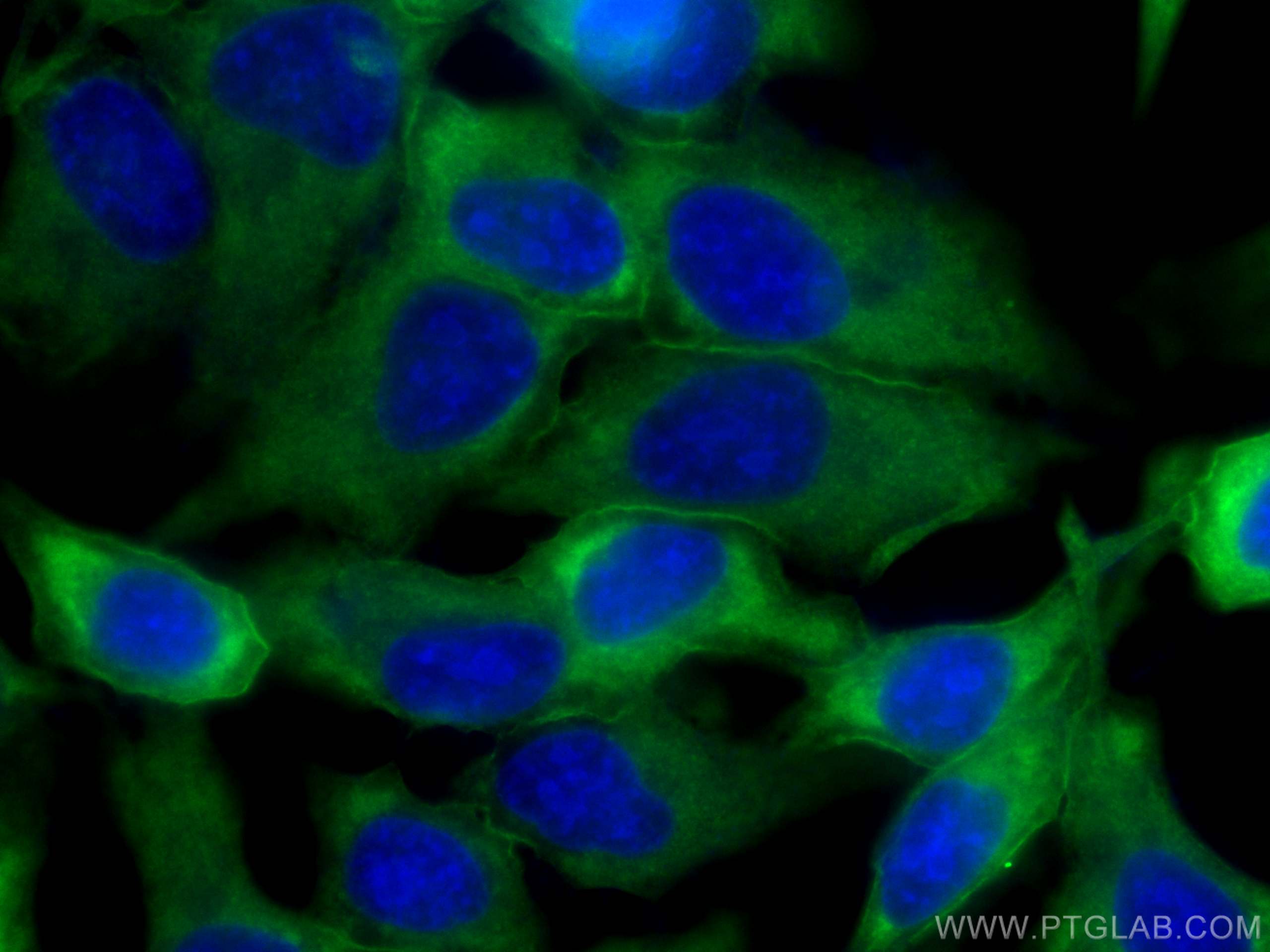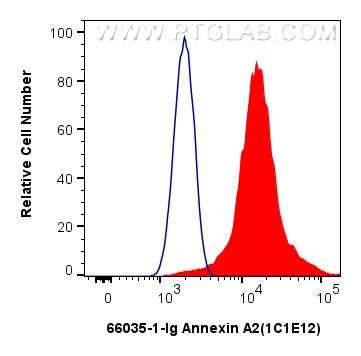- Featured Product
- KD/KO Validated
Annexin A2 Monoklonaler Antikörper
Annexin A2 Monoklonal Antikörper für WB, IHC, IF/ICC, FC (Intra), ELISA
Wirt / Isotyp
Maus / IgG2a
Getestete Reaktivität
human, Maus, Ratte
Anwendung
WB, IHC, IF/ICC, FC (Intra), IP, CoIP, ELISA
Konjugation
Unkonjugiert
CloneNo.
1C1E12
Kat-Nr. : 66035-1-Ig
Synonyme
Geprüfte Anwendungen
| Erfolgreiche Detektion in WB | K-562-Zellen, 4T1-Zellen, A431-Zellen, A549-Zellen, HEK-293-Zellen, HeLa-Zellen, HepG2-Zellen, humanes Hirngewebe, MCF-7-Zellen, NIH/3T3-Zellen |
| Erfolgreiche Detektion in IHC | humanes Mammakarzinomgewebe, humanes Hautkrebsgewebe Hinweis: Antigendemaskierung mit TE-Puffer pH 9,0 empfohlen. (*) Wahlweise kann die Antigendemaskierung auch mit Citratpuffer pH 6,0 erfolgen. |
| Erfolgreiche Detektion in IF/ICC | T-47D-Zellen, HeLa-Zellen |
| Erfolgreiche Detektion in FC (Intra) | HeLa-Zellen |
Empfohlene Verdünnung
| Anwendung | Verdünnung |
|---|---|
| Western Blot (WB) | WB : 1:5000-1:50000 |
| Immunhistochemie (IHC) | IHC : 1:5000-1:20000 |
| Immunfluoreszenz (IF)/ICC | IF/ICC : 1:250-1:1000 |
| Durchflusszytometrie (FC) (INTRA) | FC (INTRA) : 0.25 ug per 10^6 cells in a 100 µl suspension |
| It is recommended that this reagent should be titrated in each testing system to obtain optimal results. | |
| Sample-dependent, check data in validation data gallery | |
Veröffentlichte Anwendungen
| KD/KO | See 5 publications below |
| WB | See 18 publications below |
| IHC | See 5 publications below |
| IF | See 10 publications below |
| IP | See 4 publications below |
| CoIP | See 4 publications below |
Produktinformation
66035-1-Ig bindet in WB, IHC, IF/ICC, FC (Intra), IP, CoIP, ELISA Annexin A2 und zeigt Reaktivität mit human, Maus, Ratten
| Getestete Reaktivität | human, Maus, Ratte |
| In Publikationen genannte Reaktivität | human, Maus, Ratte |
| Wirt / Isotyp | Maus / IgG2a |
| Klonalität | Monoklonal |
| Typ | Antikörper |
| Immunogen | Annexin A2 fusion protein Ag16654 |
| Vollständiger Name | annexin A2 |
| Berechnetes Molekulargewicht | 339 aa, 39 kDa |
| Beobachtetes Molekulargewicht | 39 kDa |
| GenBank-Zugangsnummer | BC016774 |
| Gene symbol | Annexin A2 |
| Gene ID (NCBI) | 302 |
| Konjugation | Unkonjugiert |
| Form | Liquid |
| Reinigungsmethode | Protein-A-Reinigung |
| Lagerungspuffer | PBS with 0.02% sodium azide and 50% glycerol |
| Lagerungsbedingungen | Bei -20°C lagern. Nach dem Versand ein Jahr lang stabil Aliquotieren ist bei -20oC Lagerung nicht notwendig. 20ul Größen enthalten 0,1% BSA. |
Hintergrundinformationen
Annexin A2 (ANXA2), also named Annexin-2 or Lipocortin II, is a Ca2+ binding protein that is up-regulated in virally transformed cell lines and human tumors. This calcium-regulated membrane-binding protein, whose affinity for calcium is greatly enhanced by anionic phospholipids, may cross-link plasma membrane phospholipids with actin and the cytoskeleton and be involved with exocytosis. Heat-stress response may also involve Annexin-2.
Protokolle
| PRODUKTSPEZIFISCHE PROTOKOLLE | |
|---|---|
| WB protocol for Annexin A2 antibody 66035-1-Ig | Protokoll herunterladen |
| IHC protocol for Annexin A2 antibody 66035-1-Ig | Protokoll herunterladenl |
| IF protocol for Annexin A2 antibody 66035-1-Ig | Protokoll herunterladen |
| FC protocol for Annexin A2 antibody 66035-1-Ig | Download protocol |
| STANDARD-PROTOKOLLE | |
|---|---|
| Klicken Sie hier, um unsere Standardprotokolle anzuzeigen |
Publikationen
| Species | Application | Title |
|---|---|---|
Oncogene Hypoxia-induced circADAMTS6 in a TDP43-dependent manner accelerates glioblastoma progression via ANXA2/ NF-κB pathway
| ||
J Exp Clin Cancer Res Expression and clinical significance of annexin A2 and human epididymis protein 4 in endometrial carcinoma. | ||
Biomed Pharmacother Chlorogenic acid inhibits the proliferation of human lung cancer A549 cell lines by targeting annexin A2 in vitro and in vivo. | ||
Biosci Rep Role of Annexin A2 isoform2 on the aggregative growth of dermal papillae cells.
| ||
Analyst An iTRAQ based quantitative proteomic strategy to explore novel secreted proteins in metastatic hepatocellular carcinoma cell lines. |
